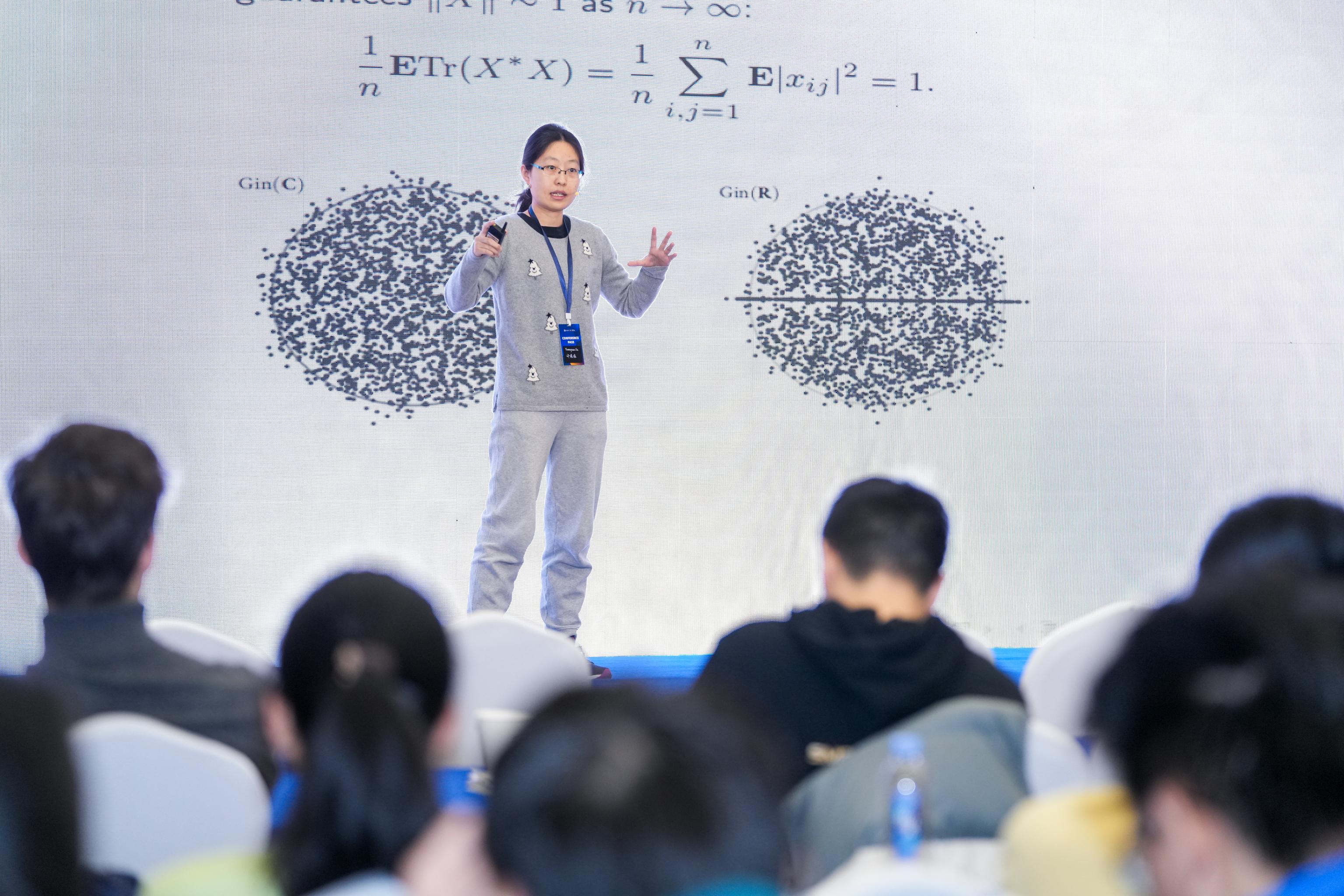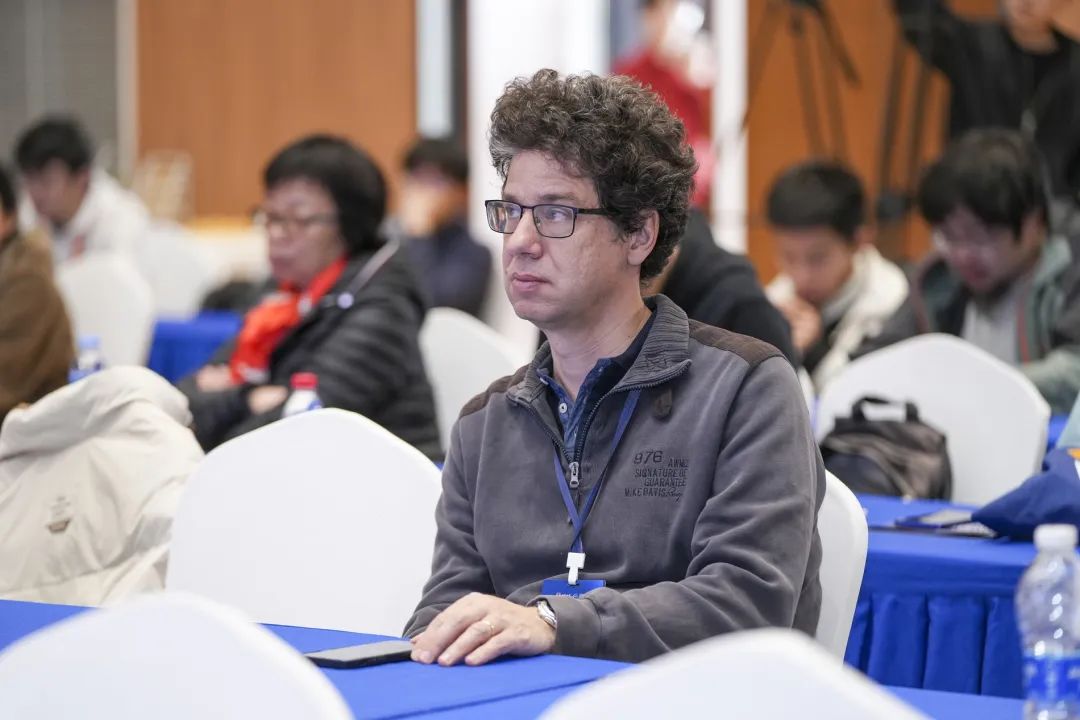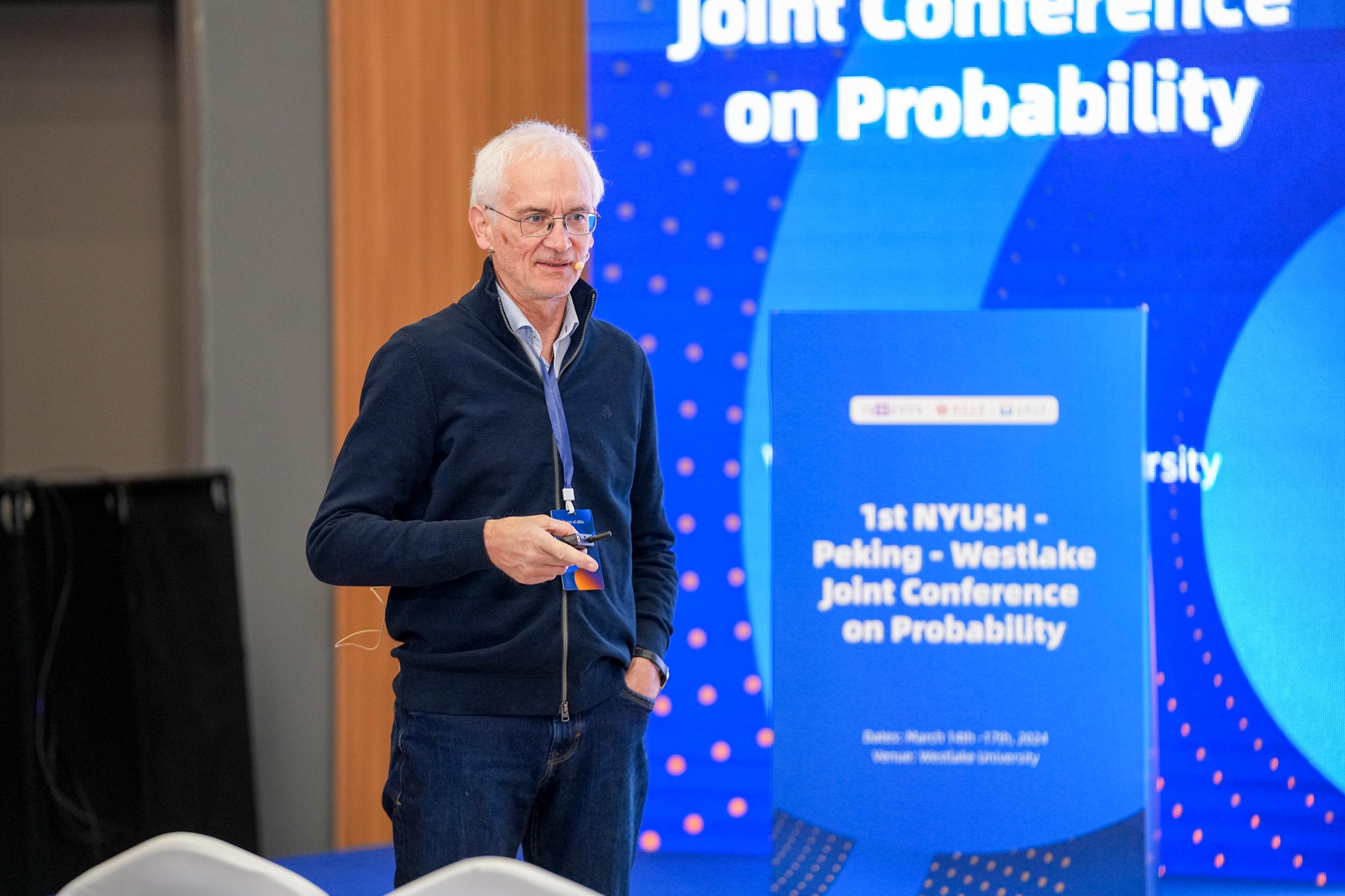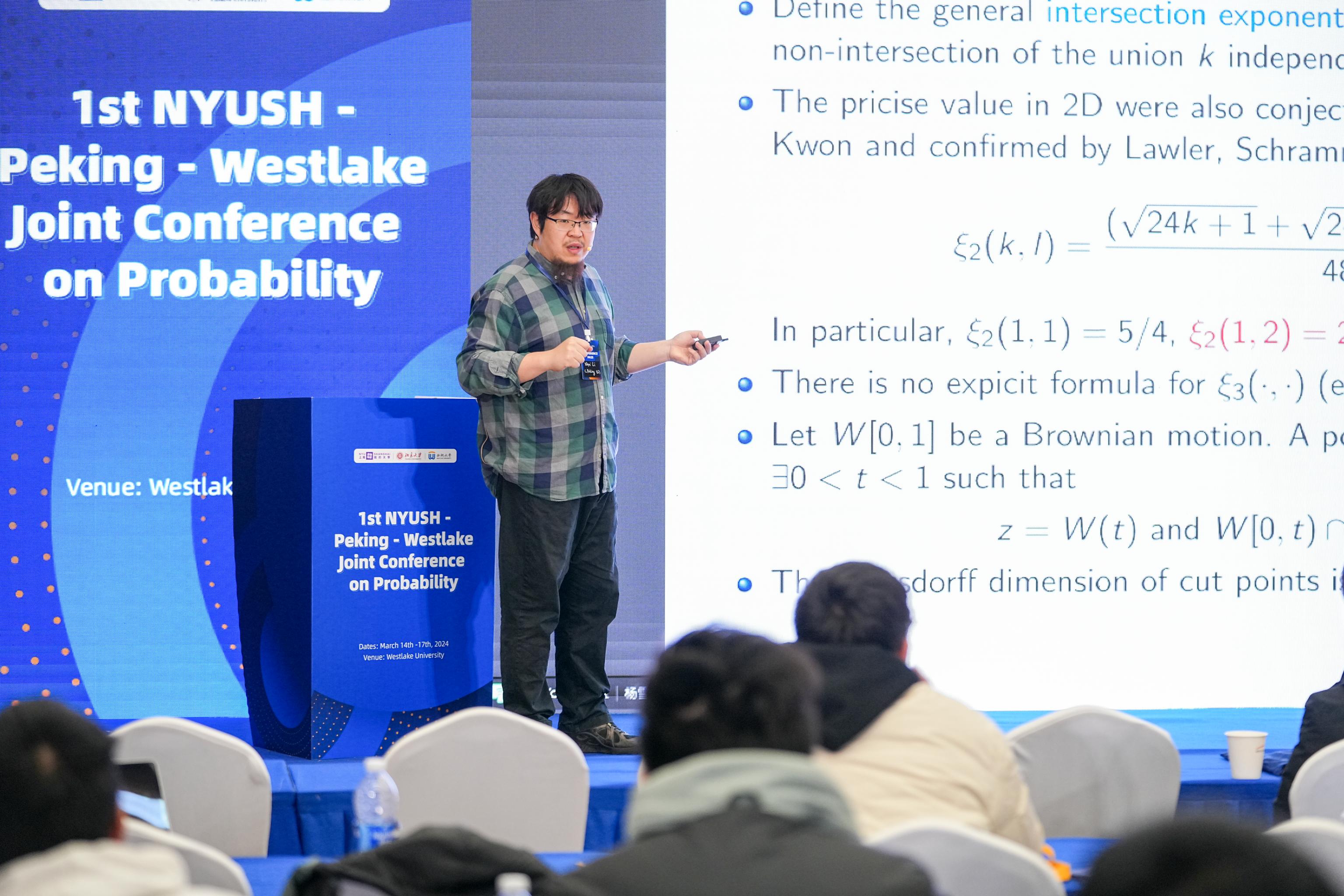The first Peking University - NYU Shanghai - Westlake University Probability Theory Conference, lasting three days, recently took place at the Westlake University Yungu Campus. In attendance were experts and scholars from the organizing institutions as well as from the Chinese Academy of Sciences, Tsinghua University, Shanghai University of Finance and Economics, Hong Kong University of Science and Technology, Technische Universität Berlin, University of Cologne, Kyoto University, and other high-profile institutions. They discussed the latest applications and developments of probability theory across disciplines and promoted interdisciplinary research.
The methods and technologies of probability theory are playing an increasingly critical role in both theoretical research and practical applications, especially in cutting-edge fields such as big data, artificial intelligence, financial engineering, and biostatistics. Probability theory is also one of the important research directions in the mathematics department at Westlake University.
Why should you study mathematics? We asked these mathematicians to weigh in.

"Mathematics can help us understand the world. Many interesting phenomena in the real world can be wonderfully explained with mathematics," said Prof. Yuanyuan Xu, an assistant professor at the Chinese Academy of Sciences.
"The skills learned in mathematics can be applied to research in other disciplines and even beyond scientific research in many aspects,” noted Prof. Zhennan Zhou, an assistant professor at Westlake University. “For instance, you can think about problems more rationally and systematically, and you can more efficiently extract deeper and more important core content from a large amount of scattered information."

According to Prof. Pierre Tarrès, professor and vice dean for academic strategic development at NYU Shanghai, "Mathematics, as a language, not only helps us understand physical phenomena but currently also aids us in understanding how machines learn. Artificial intelligence, deep learning... we are still at a very early stage."

Prof. Jean Dominique Deuschel of Technische Universität Berlin mentioned that "with the development of information technology, people need to know how to truly harness advanced technologies represented by artificial intelligence. Basic mathematical research is playing an increasingly significant role and impact in this aspect."
The day before the conference, Prof. Ivan Fesenko, a mathematics professor at Westlake University, discussed why mathematics should be studied with students at a middle school in Wenzhou as part of the "Scientists into Schools" initiative by Westlake University. “If you invent a new smartphone, you might be remembered for 10 or 20 years. Technology will quickly advance, and you will be forgotten. But if you make a breakthrough in mathematical research, you might be remembered for hundreds of years.”
While Fesenko was joking with the students, his comments nevertheless echoed the words of Prof. Li Xinyi, assistant professor at Peking University. "The exploration of mathematicians may start from interest, but if we extend the time scale, the current exploration may eventually lead to 'a seam,' a seam that offers a glimpse into the answers to complex problems, a seam that can truly change the future of the human world."
